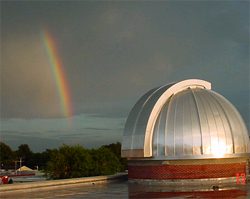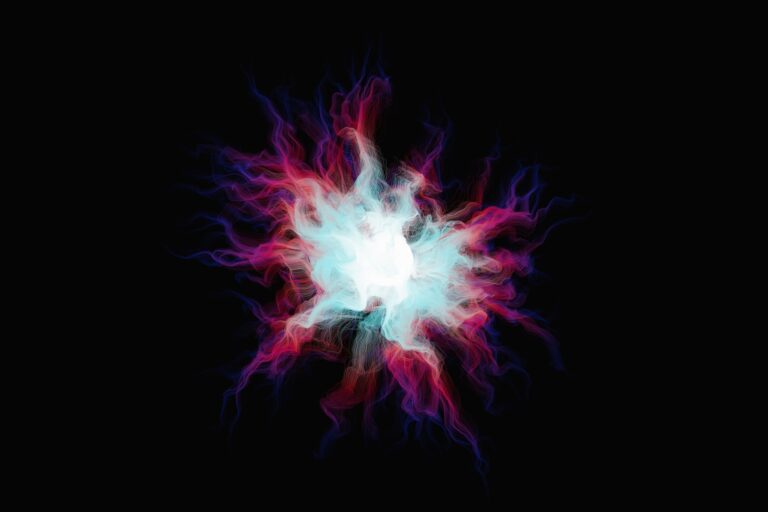Department of Chemistry, Physics, and Atmospheric Sciences – PHYSICS
College of Science, Engineering, and Technology
If you have ever wondered scientifically, “why” something is the way it is, or “how” can something exist or behave the way it does, then you’ve entered the realm of physics. Physics is the most fundamental of all sciences, and is the study of nature that is all around us. Physicists try to understand the most basic laws that govern the behavior of nature.
Physics
The objective of the Bachelor of Science in Physics program is to prepare students for careers in physics research, engineering, medicine, and other professional fields including physics teaching in high schools. The general philosophy of the Department is that each student should be able to reason, to collect facts and opinions, to think critically and to make informed decisions concerning his or her physical, social, economic, and political environment. The Department’s philosophy also includes that thinking is a skill that can be taught, and that a good scientist is also a good citizen. The purpose of the Department is to guide students in the acquisition of knowledge and the development of the skills, understanding, and appreciation necessary for a professional education in physics. State of the art research by faculty, researchers, and students of the Department are integral parts of the Department’s vision. Department faculty members are active in research, writing proposals, supervising students’ research and disseminating research results through publication in journals and/or presenting in professional meetings.
To view a listing of the undergraduate-level courses offered, click here.
The B.S. in Physics has two tracks:
1. B.S. Physics (General Physics Concentration)
2. B.S. Physics (Leading to Alternate Career Choice Option)
Physics courses prepare students with good mathematical and analytical skills. In every skilled profession, such as engineering, medicine, management, teaching, etc., analytical expertise gained through mathematics and physics courses will provide an added opportunity/tool to choose and succeed in that profession. A thorough study of mechanics, statistical physics, modern physics, electromagnetic theory, and quantum mechanics along with introductory physics courses and introductory math courses enhances students’ ability and updates modern technological innovations needed to succeed in alternate career choices. Our curriculum gives the option to choose about six (6) courses in areas other than physics. This will keep students on track to go to graduate schools in physics. In addition, it will open a horizon to choose other career options. These are not concentrations, rather students will take a set of guided optional courses to make themselves eligible for other careers along side of physics.
Click here to view the course curriculum for the B.S. in Physics (General Physics Concentration)
Click here to view the course curriculum for the B.S. in Physics (Leading to Alternate Career Choice).
"Building Tomorrow's Researchers, Scientists and Engineers Today"
LEARN BY DOING
Learn about the frontiers of space and time while searching for extrasolar planets and world-renowned observatories. Explore the mind-bending consequences of Einstein’s theory of gravity and curved space-time, or unlock the mysteries of our awesome Earth with field research opportunities.
“Challenging Minds, Changing Lives.”
RESEARCH
For many years, we have played a central role in new physics developments and advancements.
Want to learn more? Click below to view our advancements.
RESOURCES
PERSONNEL
READY TO JOIN?
For more information, please contact us at (601) 979-7012. We look forward to meeting with you and seeing how our program can help you achieve your goals.


